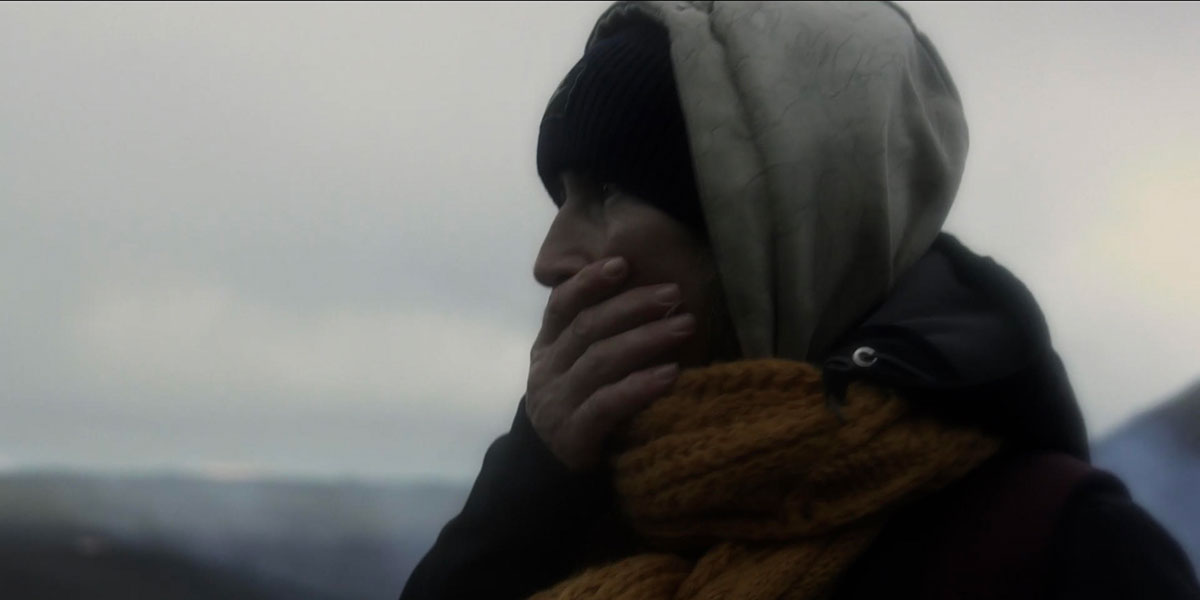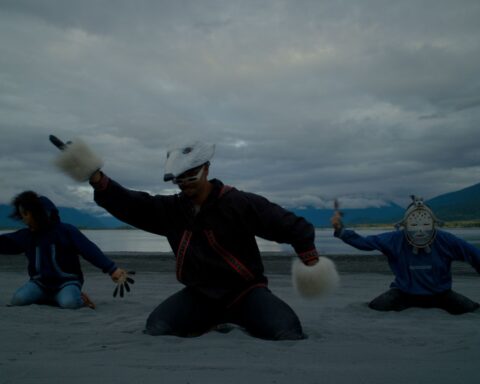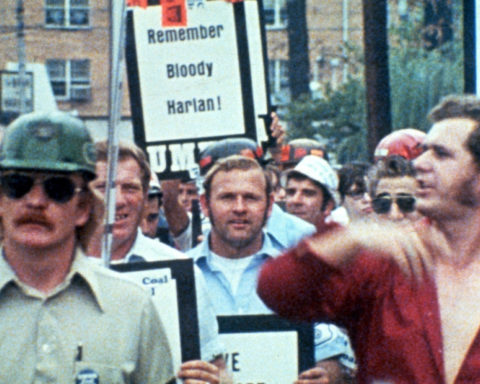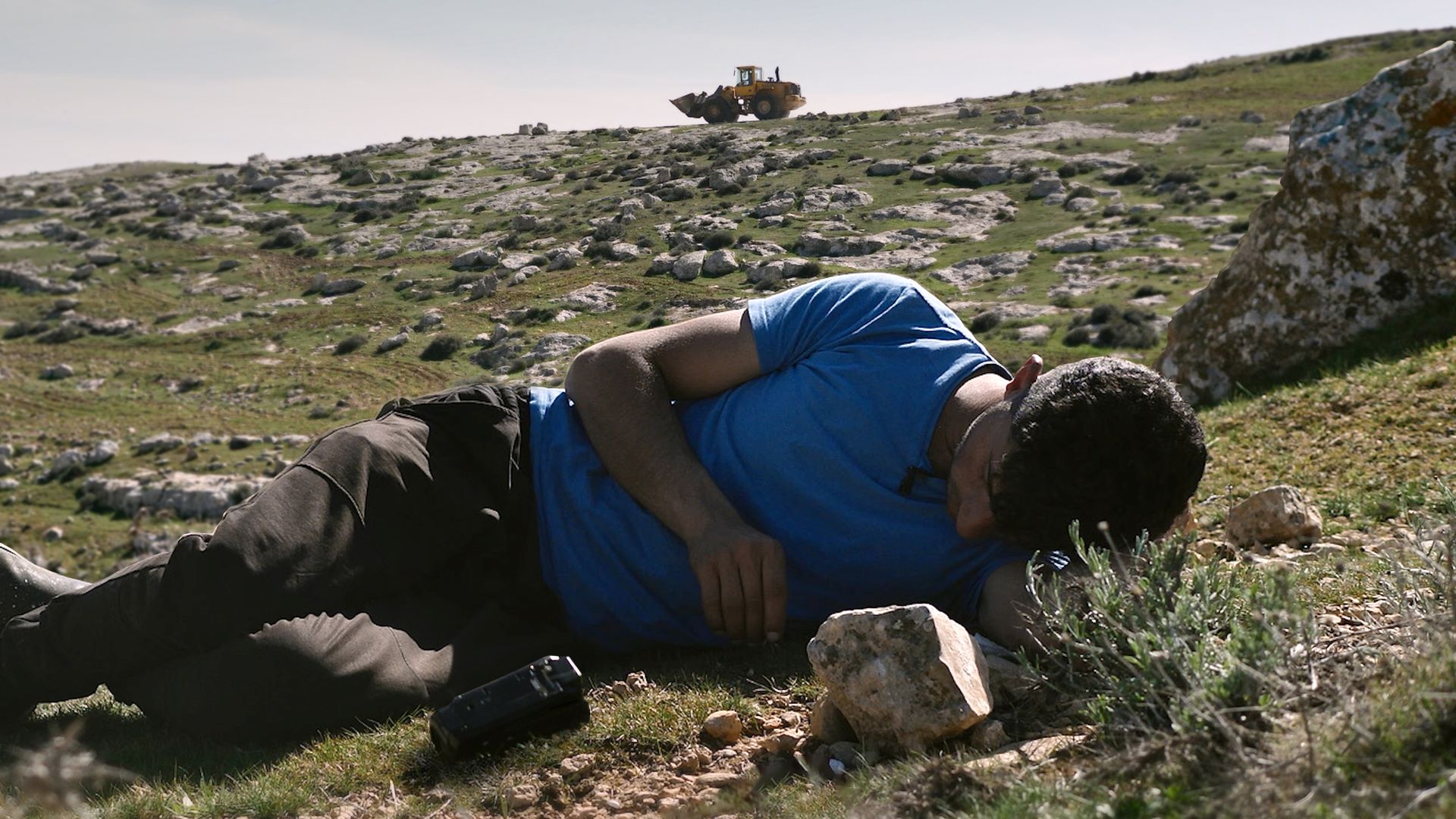Temporary Shelter
(Iceland, 97 min.)
Dir. Anastasiia Bortuali
Programme: TIFF Docs (World premiere)
In 2022, filmmaker Anastasiia Bortuali and her family fled their homeland of Ukraine to escape the horrors of the war. Seeking refugee in Iceland, the family, like thousands of other Ukrainians found themselves in a sort of limbo. Given temporary refuge in a land that listed them as “alien” on their passports, they sought a brighter future while their hearts and minds remained firmly tethered to dark times occurring back home.
Turning the camera on her fellow displaced brethren, Bortuali’s documentary Temporary Shelter stiches together an intriguing quilt where the patches are made up of hope, fear, and national pride. Following various individuals, the film captures the day-to-day rigours that Ukrainian immigrants endure in Iceland. This includes working at various factories, taking language and math classes that will help them assimilate into society, and managing the household.
By all accounts, Iceland is viewed as paradise compared to the war-torn land they have left. A place of opportunity filled with carefree locals, cheap plane tickets, cemeteries that are spacious and well-lit, and northern lights that are visible in the sky. While the new car smell of the region might be enticing, Temporary Shelter makes it clear that the stench of war still hangs thick in the air for the immigrants.
They may be physically free, but Temporary Shelter reminds viewers that the grasp of war is far-reaching. Incorporating footage taken while in Ukrainian, Bortuali uses images of bomb blasts in the distance and skies turned red from fire to note that the ongoing conflict in the Ukraine is always present in the minds of the refugees. News reports of bombings occurring near relatives’ homes and internet clips of the processions for dead Ukrainian soldiers, some of whom the immigrants fought alongside, are facets of the terror that they cannot truly escape.
The constant flow of information from back home further stokes the flames of paranoia in some of the individuals desperate to hear from loved ones.
This sense of unease is apparent throughout Temporary Shelter, as everyone has their own traumas to navigate. Something as simple as an Icelandic fireworks celebration on New Year’s Eve takes on a whole new context when viewed from the eyes of those who came from a land where young children have trained themselves to differentiate between the sound from Russia’s bombings and the explosions from Ukrainian air defence systems.
By frequently juxtaposing the serene beauty of Iceland with the frantic nature of life in wartime, Bortuali captures the emotional tug-of-war waging within the immigrants. The documentary uses this inner conflict to further emphasize importance of building a sense of community to help navigate these emotions. As one-woman notes, several of the displaced immigrants have created circle groups where Ukrainians can come together to chat, watch a movie, or even have a communal cry.
While the messaging about community and the need for healing is effective, the snapshot approach to documenting its subjects is a bit of a gift and a curse. Although the film touches on a cross-section of individuals, Bortuali never delves too deeply into their lives for the audience to feel truly connected to any one person. Even though the viewer gets a solid understanding of their situations, not all the emotional beats hit as hard as they could have.
A unique look at the reverberations of the Russia-Ukraine war from those who have witnessed it from the inside and out, Temporary Shelter is an intriguing exploration into the need for community in the face of displacement.














